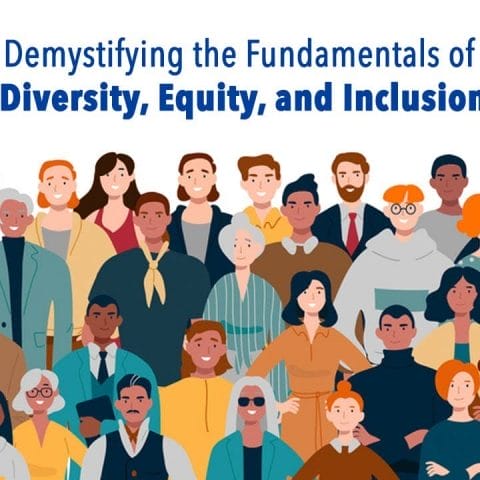Today’s buyers demand more than ever. With 70% expecting full context and deep product expertise in every interaction, outdated training approaches can’t keep up. Modern teams need smarter solutions to empower representatives instantly—exactly when knowledge gaps appear during customer conversations.
Enter AI-driven tools that reshape how organizations develop talent. These platforms analyze real-time data to deliver personalized feedback, identify skill-building opportunities, and optimize workflows. Imagine your team addressing 18 buyer questions per call (up 38% since 2022) with confidence, backed by instant coaching embedded directly into their daily tools.
The results speak for themselves. Organizations using unified development platforms see 80% higher win rates, while 76% of representatives consistently exceed quotas. Instead of waiting for quarterly workshops, your team grows skills continuously through micro-learning moments tailored to their specific needs.
This shift creates a compounding advantage. Automated systems free managers from hours of manual coaching while ensuring consistent growth across all team members. Leaders gain visibility into performance trends, and representatives receive support that adapts as buyer expectations evolve.
Key Takeaways
- AI-powered tools deliver real-time guidance during customer interactions, closing knowledge gaps instantly
- Modern buyers ask 38% more questions than in 2022, requiring rapid access to product expertise
- Teams using unified platforms achieve 80% higher win rates and consistent quota attainment
- Continuous skill development replaces outdated periodic training models
- Automated systems reduce managerial workload while improving coaching consistency
- Real-time performance data enables proactive strategy adjustments
Introduction: Answering Your Sales Coaching Queries
What if outdated methods are holding your team back? Traditional development approaches often fail to meet modern demands, leaving gaps in knowledge retention and adaptability. Research shows 84-90% of training content fades within months without reinforcement – a critical hurdle when buyers expect instant expertise.

Understanding Today’s Sales Challenges
Buyers now arrive armed with research, demanding consultative conversations rather than basic pitches. Your representatives face 38% more questions per interaction than two years ago, requiring rapid access to product details and strategic guidance. This shift makes sporadic training sessions ineffective for maintaining competitive edge.
How Coaching Impacts Sales Performance
Forward-thinking organizations achieve 80% higher win rates by embedding support directly into daily workflows. Instead of relying on memory, teams receive real-time insights during customer discussions – like having an expert whispering proven strategies mid-call. This approach transforms occasional feedback into continuous growth opportunities.
Data-driven platforms track skill development across your entire team, identifying patterns that manual observation misses. You gain actionable insights to refine strategies while representatives build confidence through contextual practice. The result? Consistent quota attainment becomes measurable reality, not hopeful ambition.
What is Sales Coaching Automation?
Imagine having a personal mentor analyzing every client interaction, spotting improvement opportunities, and delivering tailored guidance instantly. That’s the power of modern development platforms reshaping how teams grow their expertise.

Defining the Concept and Tools
These solutions combine conversation intelligence with adaptive learning systems. Instead of generic training, they analyze dialogue patterns, identify skill gaps, and deliver micro-lessons during natural workflow pauses. Advanced platforms integrate with your existing tech stack, turning everyday customer discussions into growth opportunities.
Modern tools now offer interactive simulations, real-time feedback, and predictive analytics. They track progress across teams while personalizing content based on individual performance metrics. This creates a continuous improvement cycle that traditional methods can’t match.
The Evolution of Coaching Software
Early systems focused on storing training materials. Today’s platforms use AI to assess communication styles, emotional cues, and negotiation tactics. They flag missed opportunities during calls and suggest actionable strategies before the next interaction.
Integration capabilities have transformed these tools into central hubs. They connect CRM data with communication patterns, revealing how specific techniques impact deal outcomes. Real-time scoring systems help prioritize skill-building areas, while automated nudges keep development on track.
This evolution turns sporadic feedback into always-on guidance. Teams no longer wait for quarterly reviews – they refine techniques daily through contextual insights aligned with buyer expectations.
Benefits of Sales Coaching Automation
The right tools turn everyday challenges into growth opportunities. By integrating intelligence directly into workflows, organizations unlock immediate value while building long-term competitive advantages.

Enhanced Real-Time Feedback and Insights
Instant guidance transforms how teams operate. Instead of reviewing calls hours later, representatives receive actionable suggestions mid-conversation. This approach helps them address objections confidently while maintaining buyer engagement.
Advanced systems analyze tone, pacing, and content effectiveness during discussions. They flag missed opportunities and recommend proven strategies instantly. Imagine your team refining techniques while executing them – turning every interaction into a practice session.
Accelerated Skill Development and Consistency
AI-driven modules adapt to individual learning curves. Interactive simulations and role-playing exercises build muscle memory for complex scenarios. New hires achieve proficiency 40% faster compared to traditional methods.
Standardized programs ensure uniform quality across regions and experience levels. Managers gain visibility into progress through dashboards tracking skill mastery and knowledge retention. This creates measurable growth paths tailored to each team member’s needs.
The result? Teams using these tools show 65% higher consistency in applying best practices. Performance gaps shrink as collective expertise rises, creating a culture of continuous improvement.
Top Sales Coaching Tools: A Product Roundup
Choosing the right solution accelerates team growth while aligning with your operational needs. Modern platforms blend AI-driven insights with adaptable learning formats, turning everyday interactions into skill-building opportunities.
Comparing Leading Platforms and Their Features
Gong (4.8/5) leads with premium conversation analysis, offering real-time call guidance starting at $12,320/year. Its AI pinpoints missed opportunities during discussions, helping teams refine strategies mid-flow. Mindtickle (4.7/5) focuses on competency tracking through role-play simulations and heatmaps, ideal for managers needing granular performance data at $5,918 average cost.
Revenue.io (4.7/5) shines for Salesforce users, delivering AI-powered coaching directly within CRM workflows from $17,201 annually. For teams prioritizing engagement capture, Chorus by ZoomInfo (4.5/5) provides automated transcription and sentiment analysis across customer conversations.
Understanding Key Differentiators
Enterprise-focused Docebo (4.3/5) excels in collaborative learning, while Saleshood (4.6/5) crafts personalized buyer journeys. Evaluate mobile accessibility, CRM integration depth, and predictive analytics when comparing options.
Your decision hinges on specific needs: real-time feedback loops versus long-term skill tracking. Leading tools all address knowledge gaps but vary in how they embed growth into daily rhythms. Match platform capabilities to your team’s evolving challenges for maximum impact.





